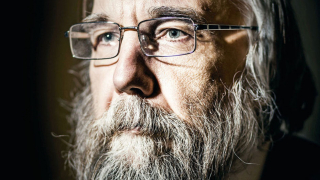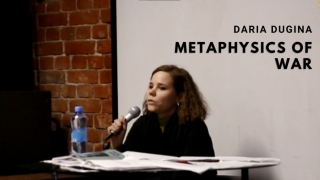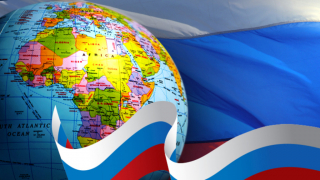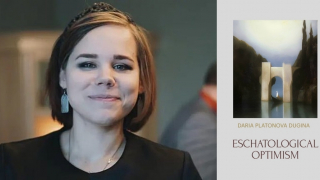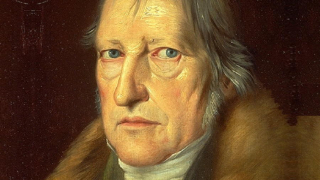The philosophy for a change of political paradigm - Society as an organic whole
I intend to analyse society as an organic whole, being necessary to confront the concept of economic development that comes from liberalism through the concept of human development.
The concept of economic development, as its name suggests, only takes into account the economic factor, leaving aside other aspects that make human beings joyful, aspects that do not come solely from the economic and material realms.
Economic development is a concept where the change of society, in this case towards modernity, is linear, because it handles a single factor, the economy.
The change of society based on human development is not necessarily linear, since it handles different aspects that change in different ways. For example, while one aspect advances another one goes backwards, being the reason why social change is not linear in as much it supposes a set of variables that are transformed in different ways.
Human development, unlike the concept of economic development, does not necessarily imply going towards modernity, since the different variables of human development change in different ways and we should take into account those traditional factors of different cultures and civilizations that are important for the happiness and freedom of different peoples. Human development can be understood as the social process by which the capacity of the individuals to live their lives in the way they consider most valuable is increased (A. Sen). In this way, the level of development of a society can be measured by the freedom which its individuals have, in order to live their lives in the way they consider most valuable.
The ideal of freedom is the objective that we must pursue, although this freedom is not only a freedom in the political plane, it is the freedom of being against all the factors that prevent achieving its full satisfaction.
To go behind the goal of human development, it is necessary for society to function as an organic whole, so we must take as fundamental the establishment of a normativist system at the economic and social level, and try to channel the different agents of society in a desirable way, in this times of globalization.
Society is composed of social agents that can be interdependent regarding each other, and they can function as organs to fulfil socially necessary functions.
The work of certain social agents generates damage to the process of human development and makes society less organic, and depending on the case, the measures are simple institutional regulation towards the action of that social agent, and in case the first solution is not possible or it is not the best, then those negative social agents are suppressed, and for that reason I speak of normativism and not of integralism, since some agents of society obstruct the objective of its functioning as an organic unit. In this way, society should be as close as possible to an organic body, where the social agents interacting with each other are organic bodies that work in a manner in which the goal of greater human development is possible. In a system that functions as an organic body, the organs are not seen in conflict with other organs during their functioning, in such a way that the whole body becomes ill.
However, the objective of normativism is not only human development, its objective is no less than human development in its sustainable version.
A society must not only ensure that its individuals are free, it must also generate opportunities for future individuals to be free as well, and this way of social functioning is the most organic, because the generations prior to the future ones will end up functioning as an essential organ for their heirs, which is fulfilling the function of granting joy in the new generations.
For the above reason, to the definition of human development of Amartya Sen, which as we have seen is to define development as the ability of a society to generate new opportunities that help increase the freedom of society as a whole in all realms regarding satisfaction, we must add the concept of sustainability, to have a definition for sustainable human development.
This is the social process that expands the freedoms of society without affecting the freedoms of future societies, that is, a process that increases the opportunities of the members of society so that they can achieve their dreams, but where the conditions are created so that future generations have that same or better chance of achieving it too.
For this to be possible, factors such as environmental care and not endangering future generations with current actions are obviously taken into account.
The different agents in society defend different interests and can build antagonistic relationships, which lead to key phenomena in the history of humanity, such as the struggle between dominant and subordinated sectors, ethnic-religious conflicts, intergenerational clashes, and the struggle in the fields of spiritual, sexual and political pretensions in general.
These conflicts can be an opportunity to channelling human development, or they can be the opposite. Within the social relations the struggle takes place, and this takes place when the action is oriented for the purpose of imposing one's own will against the resistance of one or more opposing sides.
Struggle provokes competition, this occurs when there is a goal by one side that is also sought by others.
In its crudest aspects, the struggle establishes power understood as the probability of imposing one's will within a social relationship, even against all resistance and whatever the foundation of power is. On the other hand it establishes domination, which is the probability of finding obedience in a mandate with certain content, between given persons.
According to Weber's well-known classification, domination can occur in three ways.
Traditional form: it rests on the daily belief regarding the sanctity of traditions or customs which rule society from remote times. Rational-legal authority: it rests in the belief regarding legality of a right of command by certain rulers as to exercise authority, the law being the link between dominated and the dominating. Finally, there is charismatic authority, which rests on the personal qualities of leadership to create sympathy and attachment among the People.
As for the State, in Weber’s thinking it is defined as an association of people with a continuous activity and who must successfully maintain the claim of the legitimated monopoly of physical coercion, for the maintenance of the current order.
But as I mentioned, we have that a society should be as close as possible to an organic body, which is composed of social agents that work in such a way that the greatest possible sustainable human development is achieved. Collective action is obtained when individuals obtain greater benefits by cooperating for a common goal, than when the opposite occurs.
There are dilemmas emerging from game theory, such as what happens when individuals decide to adopt a bad strategy because they do not know the preferences of others.
In game theory, Albert W. Tucker formulated the dilemma known as "prisoner’s dilemma", where someone prefers not to cooperate with the other although the situation dictates that both will lose by giving themselves away.
In many cases we are facing problems regarding limits in the information that people possess with respect to both the total and partial "picture", something analogous to the information problems that are seen in the economy when not all sectors of the market are seen.
In other cases we are faced with perceivable costs to inform ourselves or to participate, which individuals are not willing to assume. The cost of collective action is greater as the group is larger, therefore for a better collective action groups should generally be of lesser size, and there must be selective incentives capable of making the individuals accept the cost involved in getting informed and participating in the actions of their groups. The totality of the social agents necessary for the greatest possible human development must be present to work within society, so the task of the State is to arbitrate around which of these agents should be present and how to regulate both the agents that should be present as those that should not.
There are agents that are structurally necessary, conserving that same condition as long as they are an essential part of the People’s life. The structurally necessary agents must act in such a way that the greatest sustainable human development is achieved for the population as a whole, while the agents whose action is between unsolvable conflict with the previous objective are structurally unnecessary agents.
In human societies, some social agents are sometimes not structurally necessary, and those which are, not always are working in a way that does not conflict with the goal of the greatest possible human development for society as a whole.
Both structurally necessary and unnecessary agents can come into conflict with other agents and be eliminated throughout human history.
A clear example occurred in the French Revolution, when the French monarchs indeed constituted a parasitic estate that consumed more and more impoverishing the rest and without contributing anything for the welfare of the vast majority of that society.
The result was the elimination of that parasitic agent in the midst of struggles with other sectors of society, in the same way that many monarchies have been eliminated around the world, disappearing socio-economic and socio-political forms of feudal systems, as they ended up being an obstacle to the development of human societies.
The scientist James Lovelock tells us in his ‘’theory of Gaia”, that the entire biosphere (the set of living beings of the planet together with the elements of the lithosphere, hydrosphere and atmosphere with which they interact) can be understood as a single living organism, that is, a being where all its parts are interrelated and yet still are as independent as the cells of our bodies.
So, when understanding humanity now as merely a cell in all this organic system, and therefore as a single entity, we must integrate the characteristics that make the best possible functioning of it. Even in nature, perfect systems are not found, since for example the components of cells, even those of our body, can stop working properly, causing the cell to get sick or die.
The cells are adapted to the situations of the environment that affect them. As long as they can adapt themselves to a modification of the environment, they won’t experience damage. Therefore, humanity must be in a constant struggle to adapt itself to its environment and survive, being the freedom to preserve life the basis on which other freedoms arise.
In the capitalist system and capitalist society, the regulatory intervention of the State is needed, together with the intervention of other institutions, so that certain social agents (for example, the companies of an economy) comply in the best possible way with
their function as organs of society, acting in favour of the maximum possible sustainable human development.
Based on what was mentioned above, we can define normativism as the ideology that advocates for society a tendence to function as an organic body through the placement of norms in that society, and we will understand that "function as an organic body" means that it does so in the way that is best for the sustainable human development of that society, and therefore in a way in which the State acts in accordance with the authentic will of the People.
There are situations where the transition from a situation 1 to situation 2 is an improvement for all individuals in society, or an improvement for some, without the others being harmed.
The Pareto optimality concept indicates a situation where someone's well-being can not be improved without somehow worsening the situation of others, for example, if 10% of the population owns 90% of the wealth, and 10% is distributed to the rest. It would be an optimal Pareto situation if the individuals have exactly as much as all the others, and the same can be said of many situations that are between one extreme (complete inequality) and the other (complete equality).
From Pareto's point of view, there is no criterion that allows one situation to be selected as preferable to the others. Then, we must establish an "optimum" where we can select situations as preferable to the others, an "optimal" that can be called as social optimum.
I define the social optimum as that situation where you can reduce the freedom of one or more individuals and increase that of another or others in a way that at least compensates for the reduction in the freedom of the former.
Thus, for example, if a famine affects a country, violating the property of individuals with greater wealth (for example through taxes, expropriations, etc.) which is a violation of their freedom, is obviously preferable to the loss of freedom that some individuals would suffer if they die of hunger.
Or putting a less extreme case: if 1% of individuals concentrate 50% of the wealth, and the other 99% of individuals keep 50%, but nevertheless that 99% have their basic needs met, what they do not spend on those needs will be spent exclusively on other needs. In this second case, it would still be preferable to take part of their wealth from the former, as long as access to more wealth for people in the 99% implies an increase in their freedom that goes beyond the decrease in the freedoms of the rest, taking into account that this freedom is only that of 1% of the population. Individuals with lower incomes than that 1% want to satisfy needs in ways that can always be between a little and much more essential than those of that minority.
It should also be taken into account that some individuals may make better use of the increase in their ability to access goods, services, and freedoms. Because of this, their freedom will grow more than those who do a worse use.
Finally, it should also be taken into account that distributive measures carried out incorrectly can have a negative effect on the economy and society. This makes the freedom of people within the 99% to not increase enough or even decrease, including the freedom to access the goods and services they need, either because the wealth of society as a whole decreases, or for other reasons. Individuals should not only have the opportunity to increase their capacities, they should also have the education to make better use of their abilities, hence education, both formal and informal, is so important for sustainable human development.
In order to be free to do his authentic will, a person must become a master of his body, that is, he must have a healthy body. He must also be master of his emotions, to control them with a properly educated mind and free of the memory of bad experiences, which
is linked to social processes, being that an essential issue for joy and for making others joy full.
Finally, we must be masters of our desires, since we must create, recreate and absorb all kinds of concepts with our minds and materialize them, to make more prosperous our life and that of humanity.
I believe that the control over these realms leads to health, and it should be noted that the last one, regarding the desires, is important as our desires have a direct implication with our own health and that of others, and I believe that this is a conceptual contribution that must be made if we really want to have a complete definition of what health and disease are.
Regarding this, we can emphasize the role of education in health, but we can also frame education as something essential for health, without it health wouldn’t be possible.




